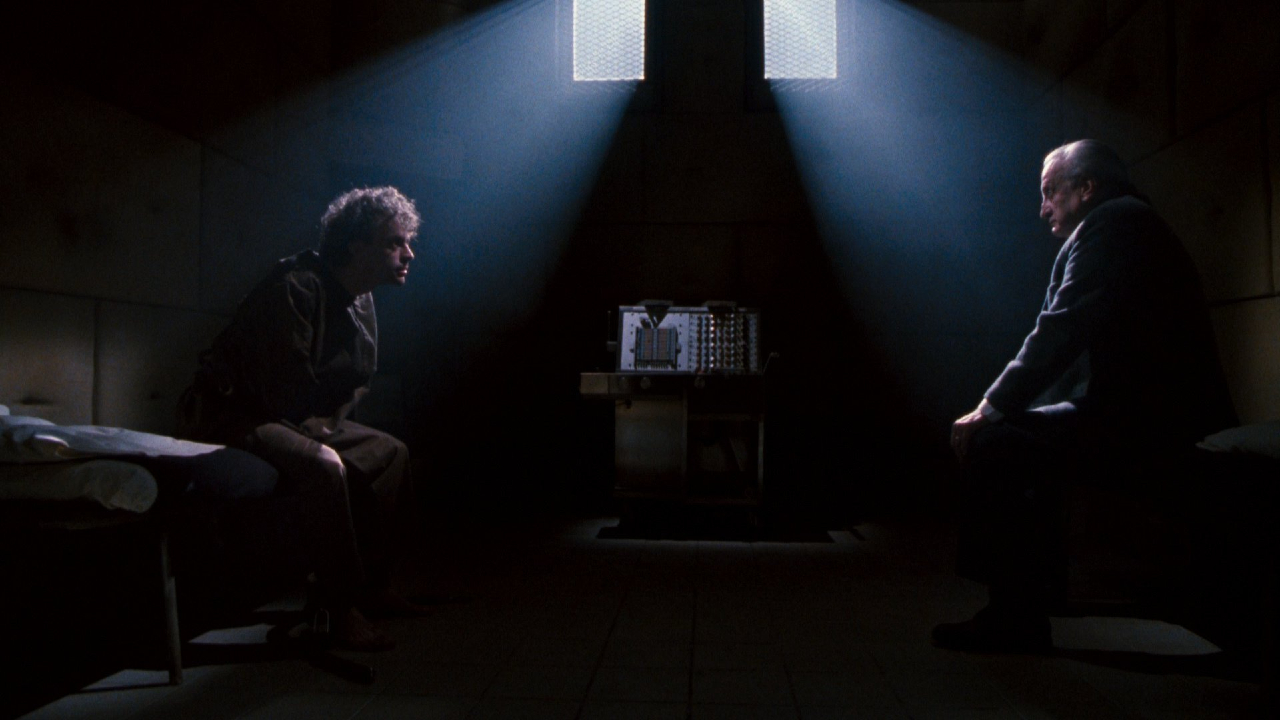How The GREATEST Horror Movie Sequel Was Almost Ruined
William Peter Blatty, Legion, & The Beginnings Of The Exorcist III

To trace the roots of The Exorcist III you obviously have to go back to the origins of its progenitor. What would become the seminal horror film of the 1970s started as a seminal horror novel, conceived by Blatty after he read about a case of demonic possession that ostensibly occurred in the 1940s. The facts surrounding this case are incredibly dubious and have been scrutinised for decades, but they captivated Blatty while he studied at Georgetown University.
Rather than be dispirited by such an apparently convincing account of demonic possession, Blatty took it as an affirmation of divinity; in other words, if there is an ultimate evil, then there must be an ultimate good. That rationale is the central conceit of The Exorcist as well as its 1973 film adaptation, which sees father Damien Karras (played to heartrending perfection by Jason Miller) doubt his faith in the midst of everyday cruelty, until he is confronted by Regan's possession and embraces God in a moment of sacrifice. It is, on paper, a sad ending, but for Blatty, it was meant to be inspirational - an element the author felt was obscured by the film's theatrical conclusion, which while still the superior version, in my view, led to a rift between Blatty and Friedkin. (Blatty's preferred ending, where Lieutenant Kinderman and Father Dyer start their friendship, was restored with the release of The Exorcist: The Version You've Never Seen in 2000.)
This rift persisted for years, until eventually the two reconciled. Blatty then began work on a sequel to The Exorcist that he developed with Friedkin in mind as director. However, Friedkin left the project as a result of those ever-pesky creative differences, which led to it falling to the wayside. Blatty then reshaped his Exorcist sequel into a novel, Legion, which was published in 1983 and became a hot-seller. The novel itself is just as gripping as The Exorcist, maintaining those spiritual beats albeit in a way that feels refreshingly less sure-footed. It almost seems to double back on the ending of the previous story. Evil is never simply vanquished; it persists, twists and torments, casting doubt even when clarity has been found. If The Exorcist was steadfast in its affirmation of faith and goodness (and, to be clear, one does not automatically beget the other), then Legion is more contemplative, anguished, and ultimately less sure of the answers. Both novels occupy a similar theological and reverential approach to narrative, but Legion's prose is tinged with tragedy, as a victory once earned is robbed and twisted into a cruel joke.
Despite boasting no immediate connection to The Exorcist in its title, Legion became a best-seller and led to Blatty rekindling his plans for a film adaptation. Horror Master John Carpenter was even sounded out as director, but due to creative differences and suspecting Blatty wanted to direct the film himself, ended up stepping out. Blatty was thus able to shepherd the project as he intended - as a faithful adaptation of the Legion novel, which while inextricably tied to the events of The Exorcist and featured Lieutenant Kinderman as the main protagonist, contained no exorcism. While this state of affairs was at first deemed acceptable by production company Morgan Creek, it eventually became clear that the film Blatty wished to deliver was at odds with a studio desperate to rekindle the buzz of Friedkin's trailblazing original - a conflict that would have dramatic results on the final product.
[Article continues on next page...]